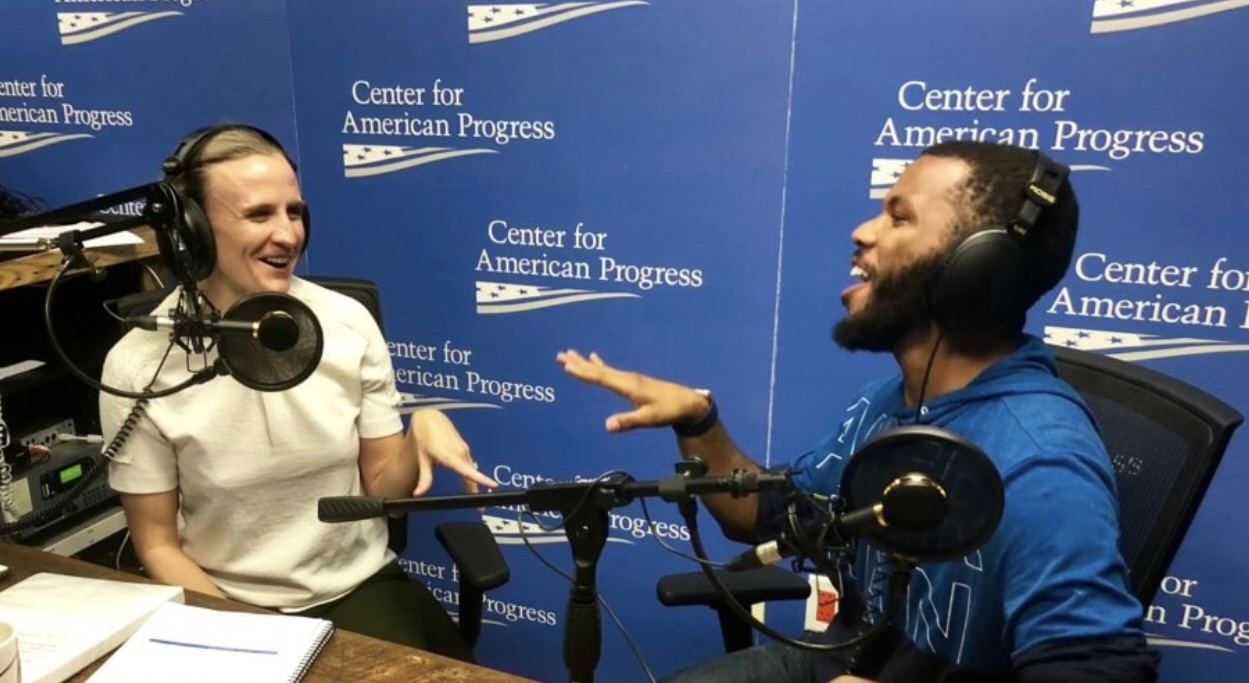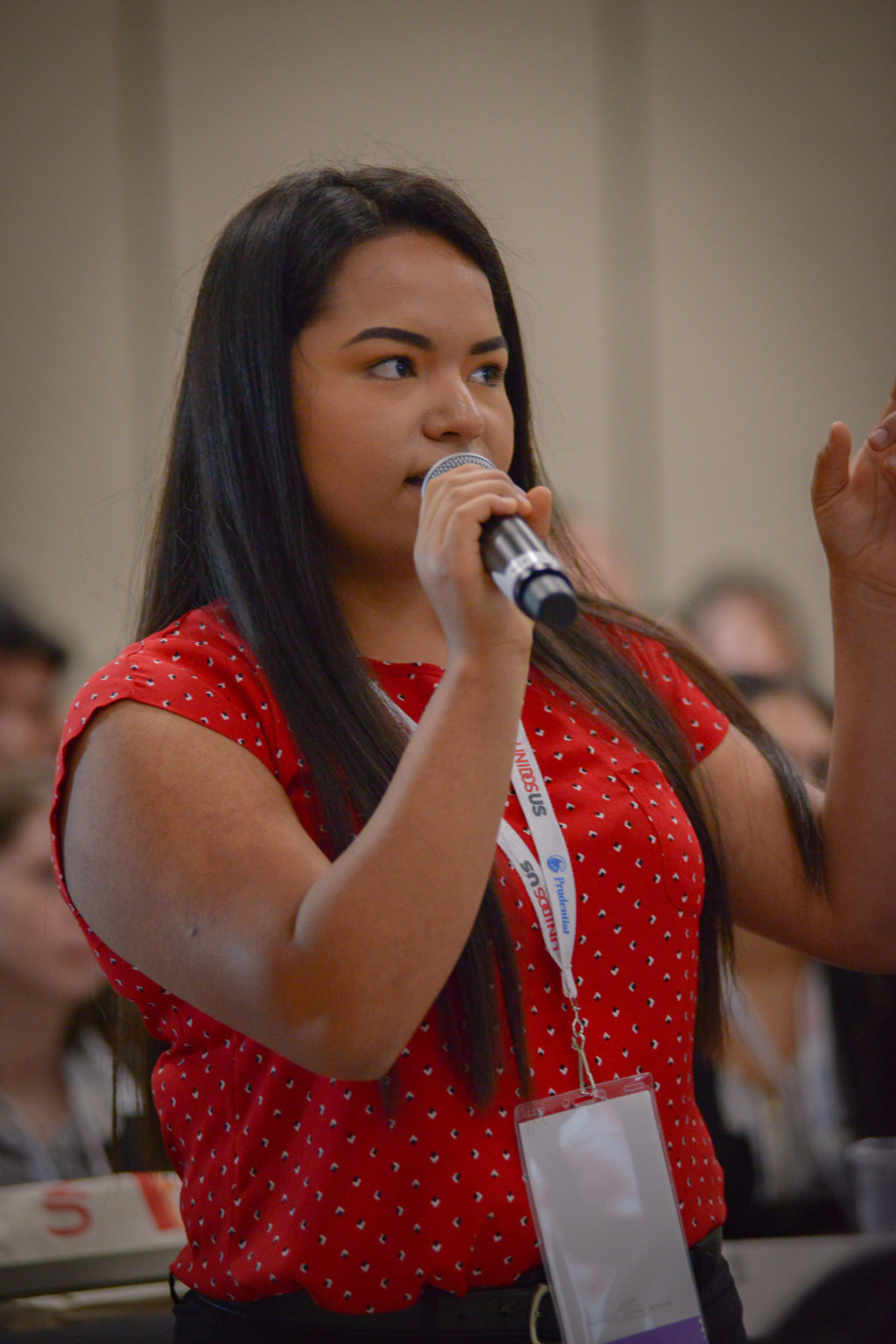Zimar Batista Wants to Bring His Whole Afro-Latinx Self to Global Diplomacy
For this year’s Black History Month coverage, ProgressReport.co is kicking off a profile series about the participants of UnidosUS’s first-ever Afro-Latinx Líderes Avanzando Fellowship. The program is geared to first-generation students pursuing their undergraduate, graduate, or doctoral degrees and recent college graduates who identify as Afro-Latinx and are passionate about racial equity and making meaningful change in their campus community, workplace, and beyond. Publication of the Afro-Latinx Líderes profiles will continue throughout the spring.
What does it mean to give back to your community when they’re split between two countries? For Afro-Latinx Líder Zimar Batista, 24, it means getting the hard and soft skills required to one day become an international civil servant—one with a diplomatic passport, one who can speak the languages of the people he hopes to assist or the people he needs to leverage to make that assistance possible. And most importantly, one who can show up in a world of heavy bureaucracy as his full, authentic self.
Born in Fort Lauderdale, Florida, raised in his parents’ Dominican Republic, and then high school and college educated back in the United States, those are the goals Batista is working toward as he participates in the UnidosUS Afro-Latinx Líderes Avanzando Fellowship.
The program coincides with some other major changes in his career growth. He recently left a full-time as a data analyst at the U.S. Department of State’s Latin America division for a role as a program associate at the Washington Regional Association of Grantmakers and he was just accepted at the George Washington University for a master’s in public policy.
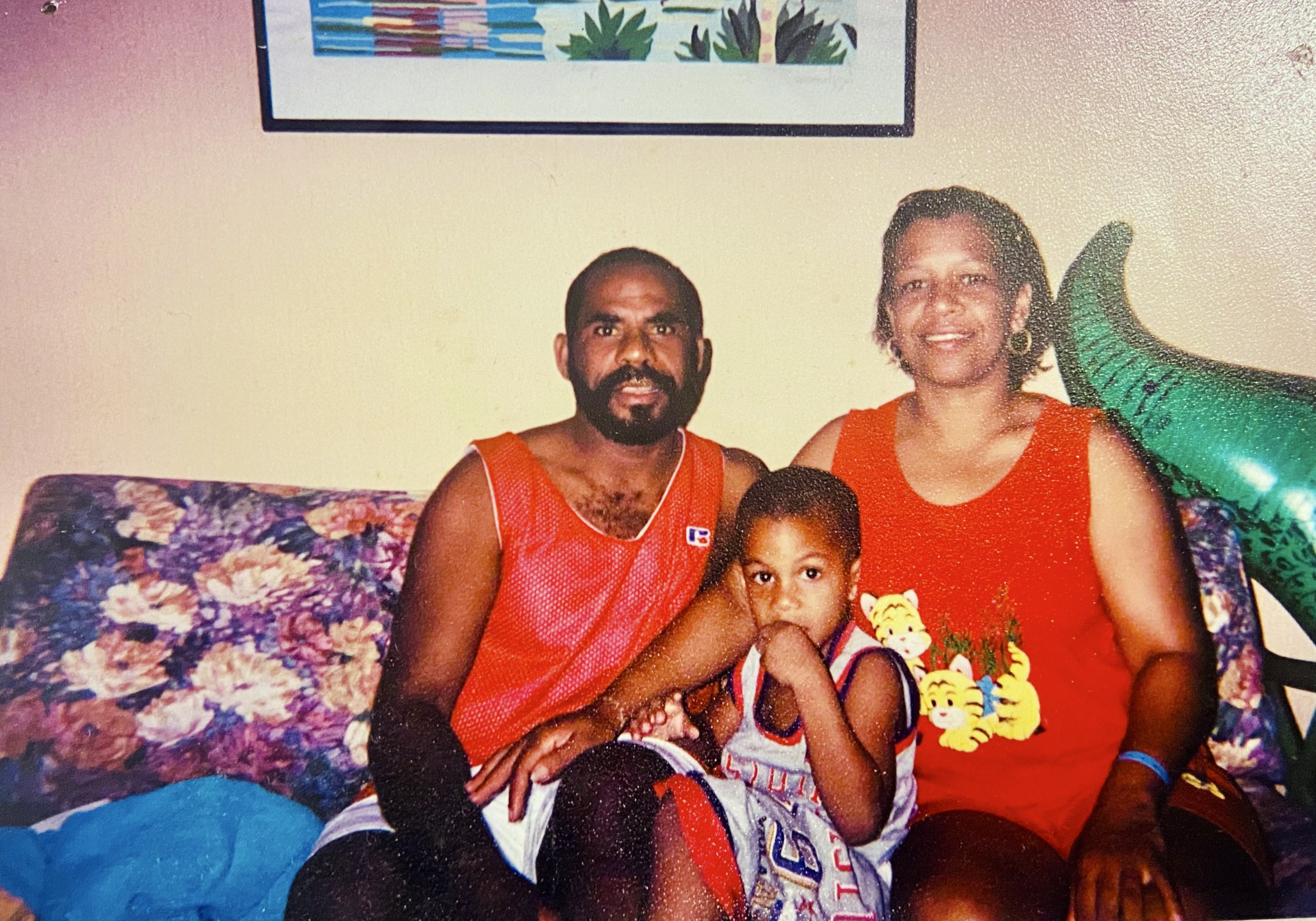
“Growing up as a Hispanic child on a small island, you always look at the map and think ‘wow, there’s so many countries that speak Spanish. Why not a career in economics that can really make an impact?” asks Batista. He says he often imagined helping to improve the infrastructure that connects the greater Antilles to the rest of Latin America and the Caribbean. In fact, one day he hopes to combine all these studies, trainings, and insights in a job at the Inter-American Development Bank, one of the world’s foremost multilateral banks.
Batista obtained his bachelor’s degree in economics and a double minor in international studies and Spanish at American University’s School of International Service. While there, he was able to enroll simultaneously in an AmeriCorps program in Washington that would have him working part time in Latino youth outreach, but he quickly realized that it wasn’t just lacking infrastructure that left his people disconnected. At many youth gatherings, he said the Latino leaders who showed up to speak were fairly homogeneous, and they looked nothing like him.
“In schools and in my personal experience, people would hear my last name and ask ‘where are you from? I would just say, I’m just African American because every time I tried to tell them there are Afro-Latinos in the Dominican Republic, people just couldn’t comprehend the fact that I was a person of color and that I could speak Spanish.”
Even today, he says, most Americans think of Latinos as coming from Mesoamerica and looking browner and more mestizo, a term usually used to describe people of mixed Indigenous and Spanish ancestry.
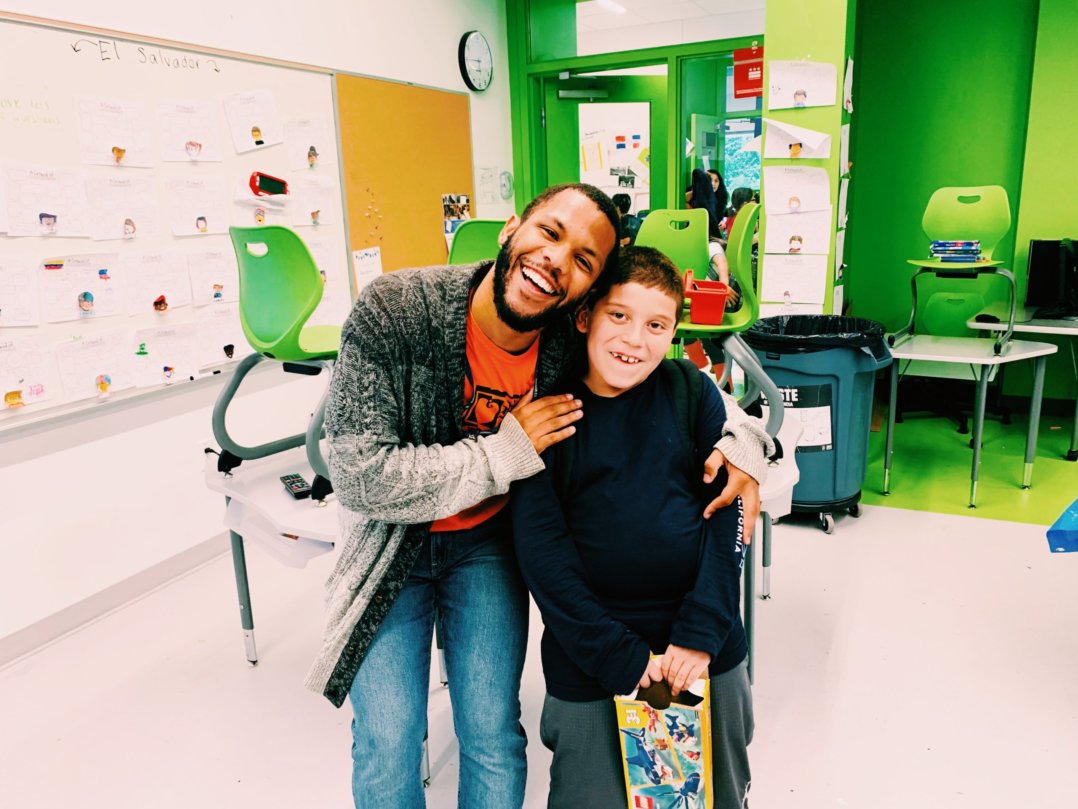
“I was getting to hear from all these wonderful Latino and Hispanic speakers doing amazing things within my community but there was always this feeling like ‘where are the Afro-Latinos?’” he says. “I felt there was this gap.”
But he stayed the course of his desire to find a voice and a role for himself in international diplomacy by taking a college internship doing data entry for the State Department, where he later served for two years in the full-time role he just left as a data analyst.
“I loved it. I got to learn all about all the different problems across the globe through numbers, which translate to things like education and economic infrastructure,” he says.
He held that role while also serving as an associate intern in a leadership development program for the nonprofit organization the Partnership for Public Service.
It was during all these endeavors, that Byron L. Williams, an Afro-Latinx mentor he met through LinkedIn, told him about the Afro-Latinx Líderes Avanzando Fellowship. The two agreed Batistsa’s participation in the program could help him think about how he can be instrumental in promoting diversity, equity, and inclusion in schools, government agencies, and non-profit institutions at both the national and international level.
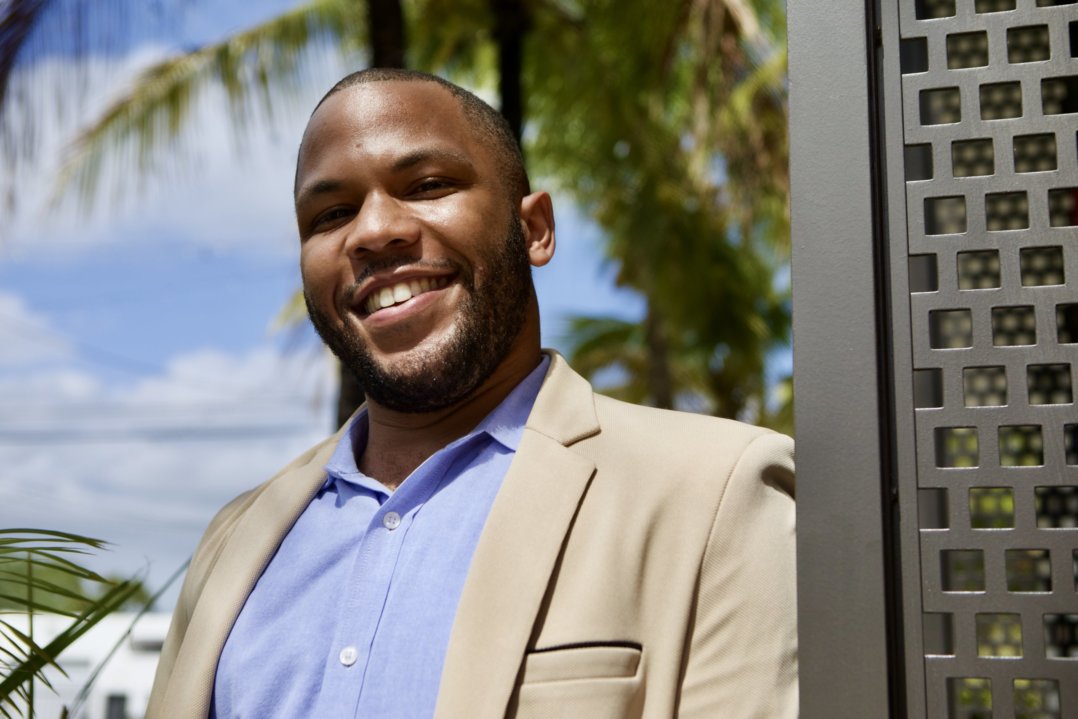
“That’s definitely something I connect with,” he says, noting that it can also lead to more diverse hiring practices.
Plus, he says, it’s common that people in classes or in workplaces really aren’t aware of the incredible diversity of those around them because they generalize by how that person presents themselves. For example, some educators encouraged Batista to lose or reduce his Dominican accent in English for fear that he would not be taken seriously.
These assumptions can be tricky in all kinds of schools and workplaces, and even in the Latino community, he often struggles with the concept of being a “double minority.” But ironically, anyone working in global affairs can attest that the accents are as plenty as the syntax styles of so many speakers of English as a second and predominate diplomatic language.
At the end of the day, Batista’s challenge both personally and professionally is to bridge the gaps in knowledge and attitude, and he says that’s something the Afro-Latinx Líderes Avanzando fellows are helping him to dig into.
“Oftentimes we feel that we have to hide our culture or adapt to a certain aspect of our culture, so the best and biggest attitude we can bring is our authenticity, asking ‘what is the best version of you?”
And one of the most obvious but often forgotten tools to diplomacy is the one Batista so casually and eloquently stated throughout his interview, “we’re all humans. We all have similar dreams and similar aspirations.”
Author Julienne Gage is an UnidosUS senior web content manager and the editor of ProgressReport.co.


